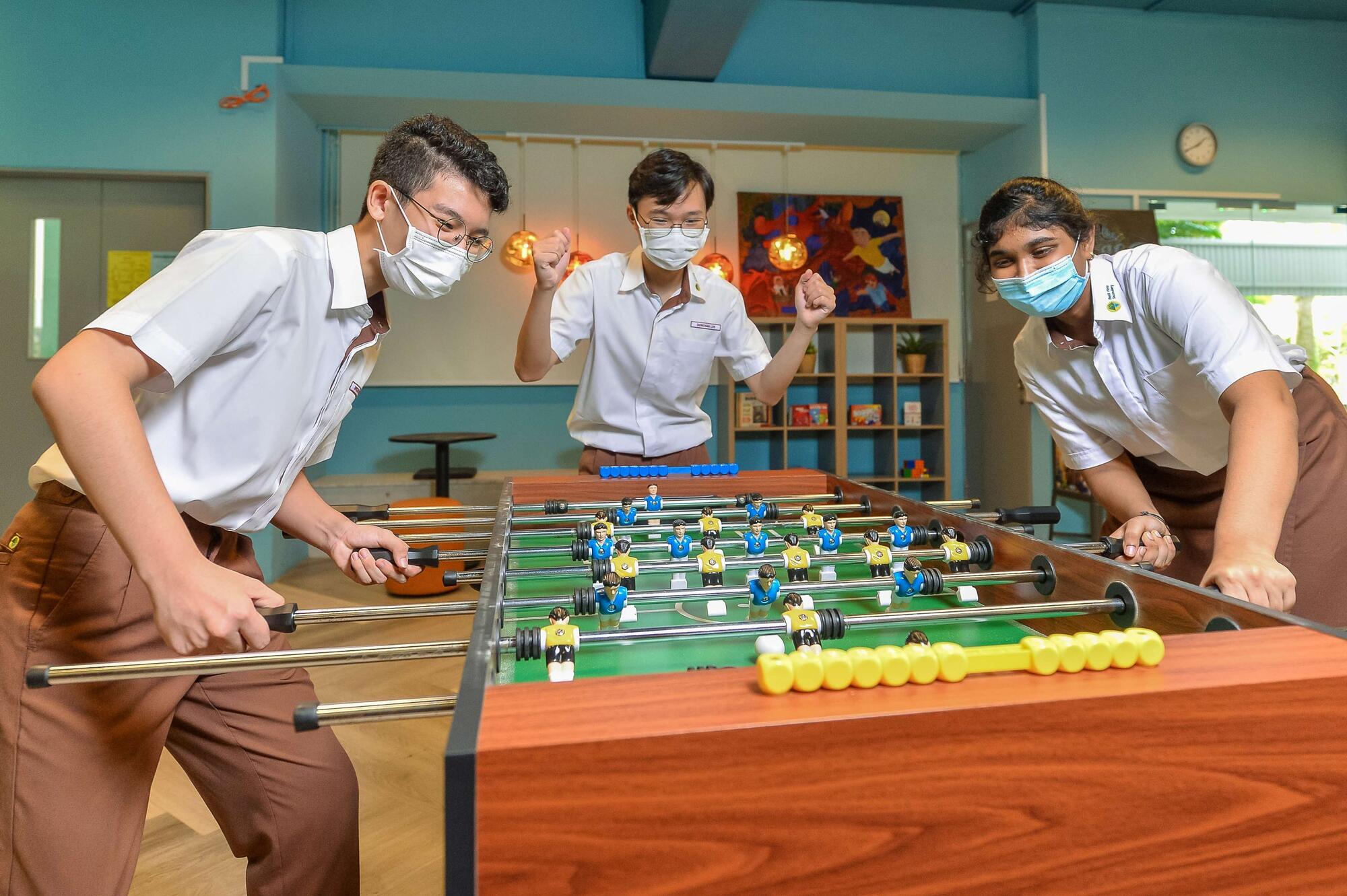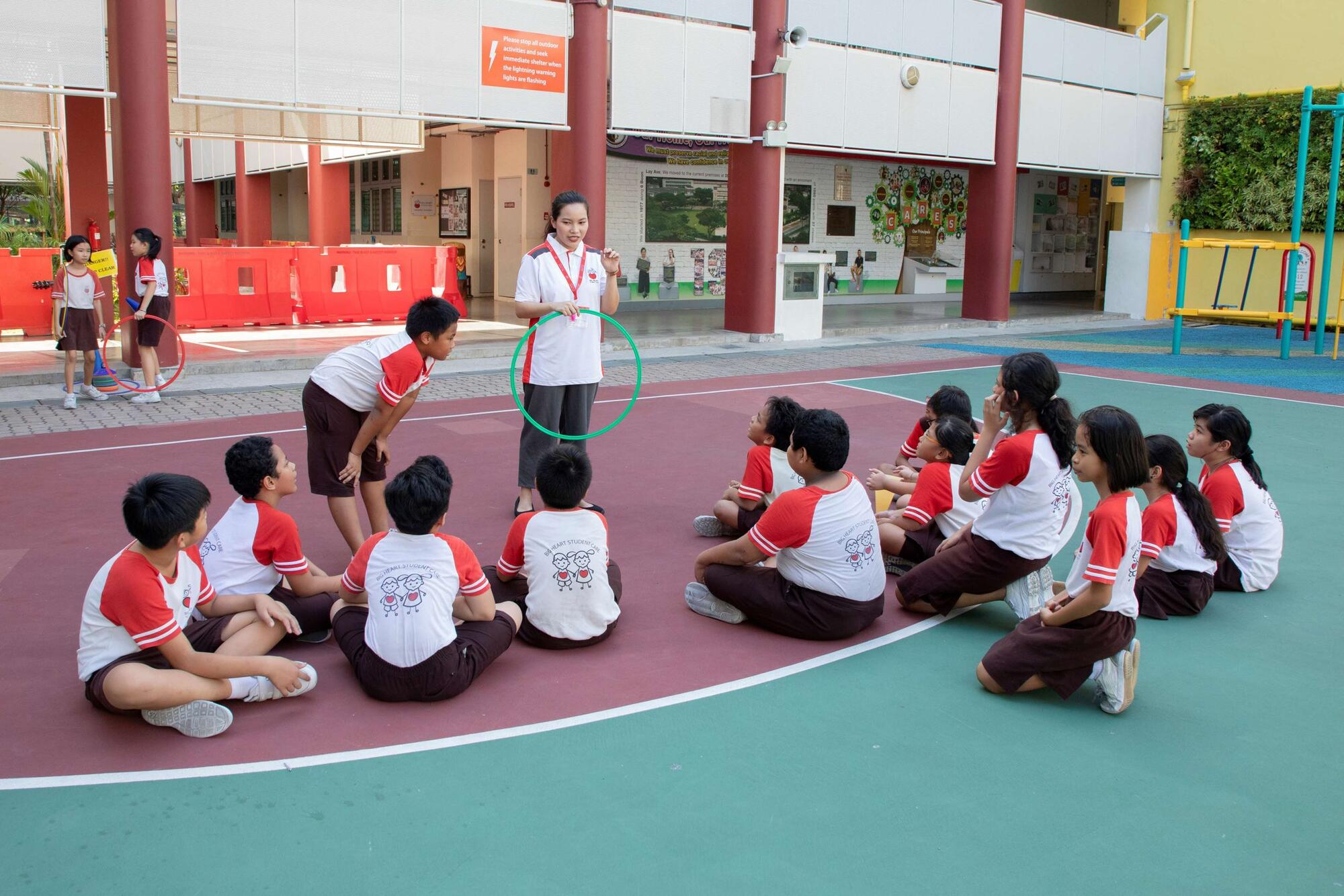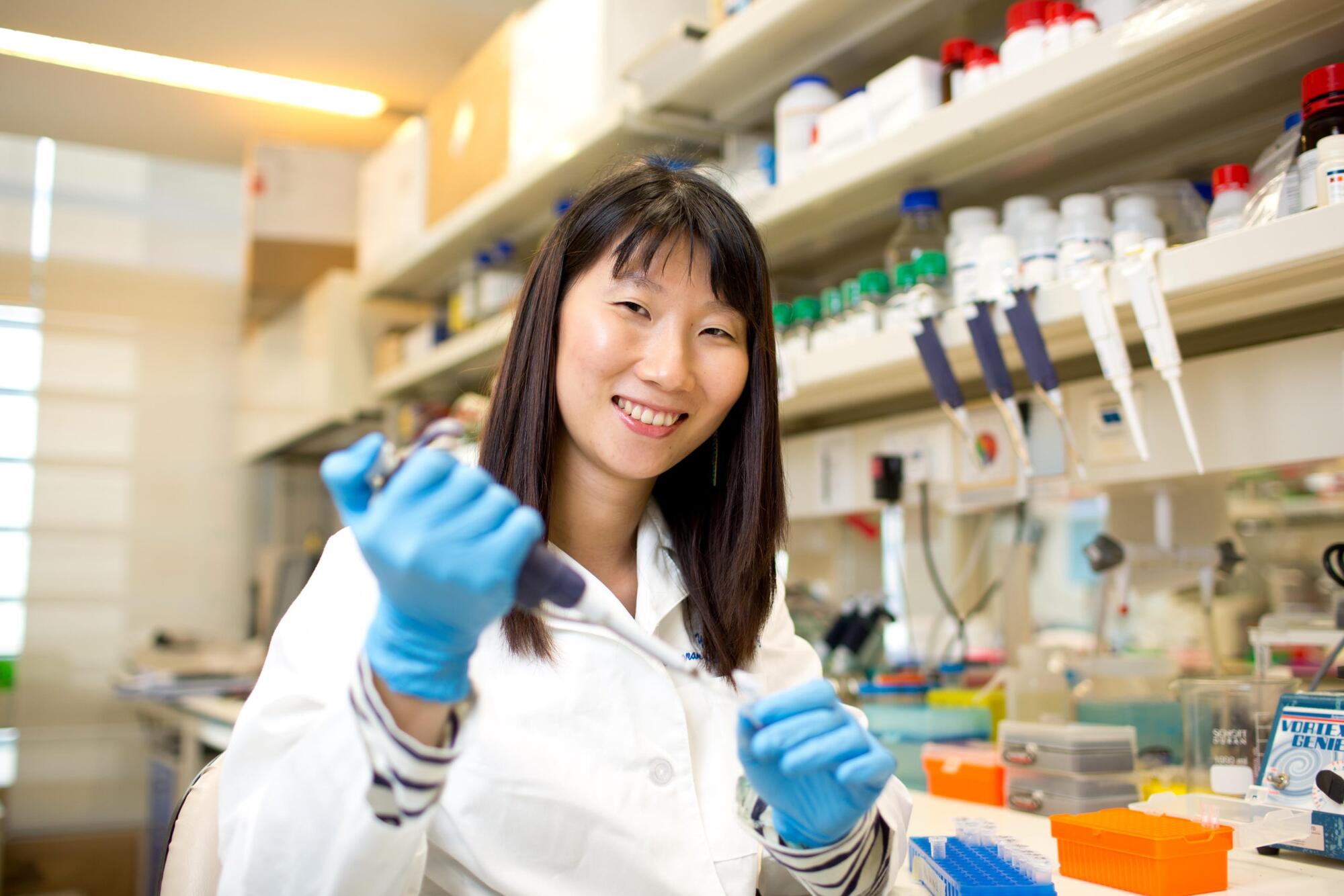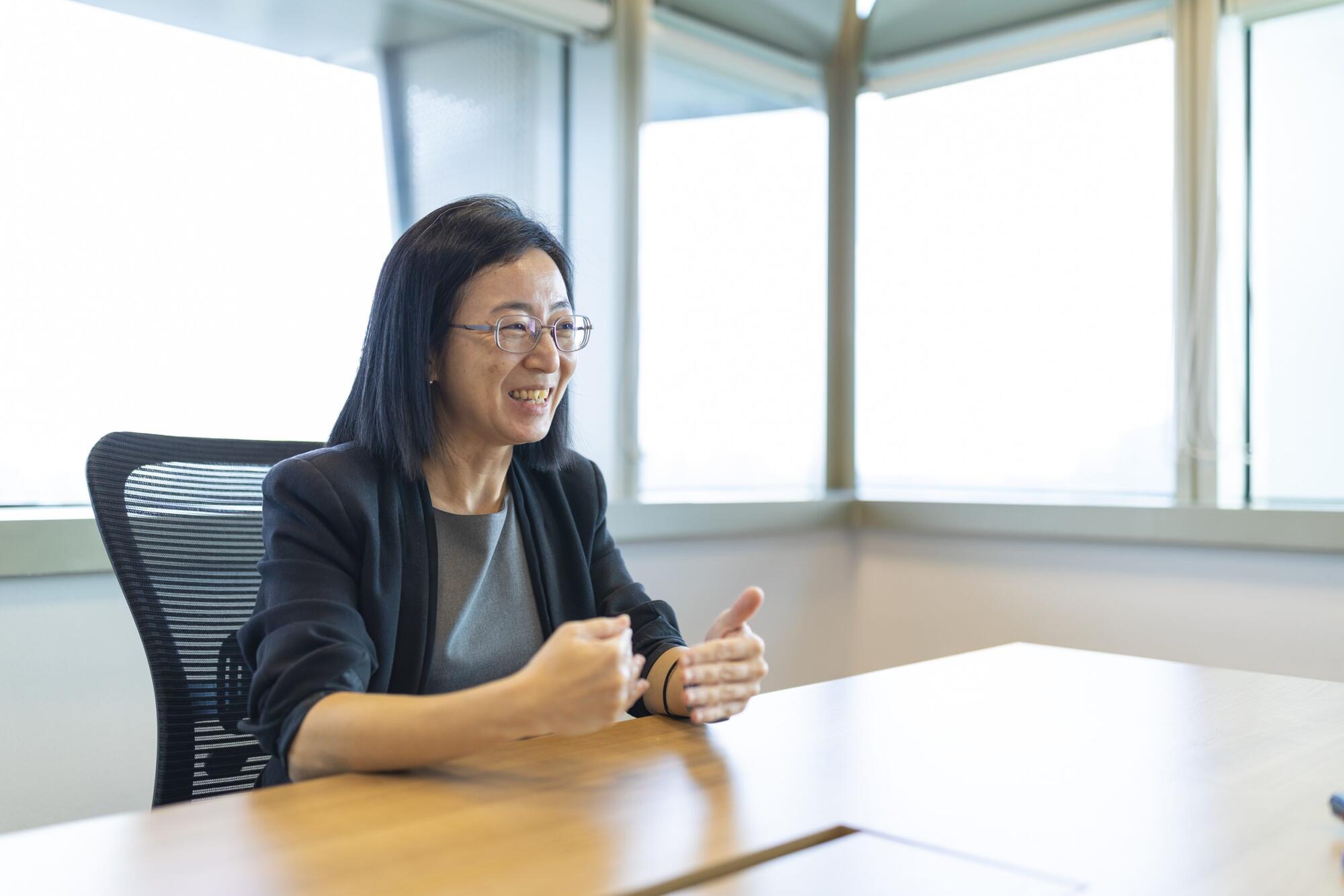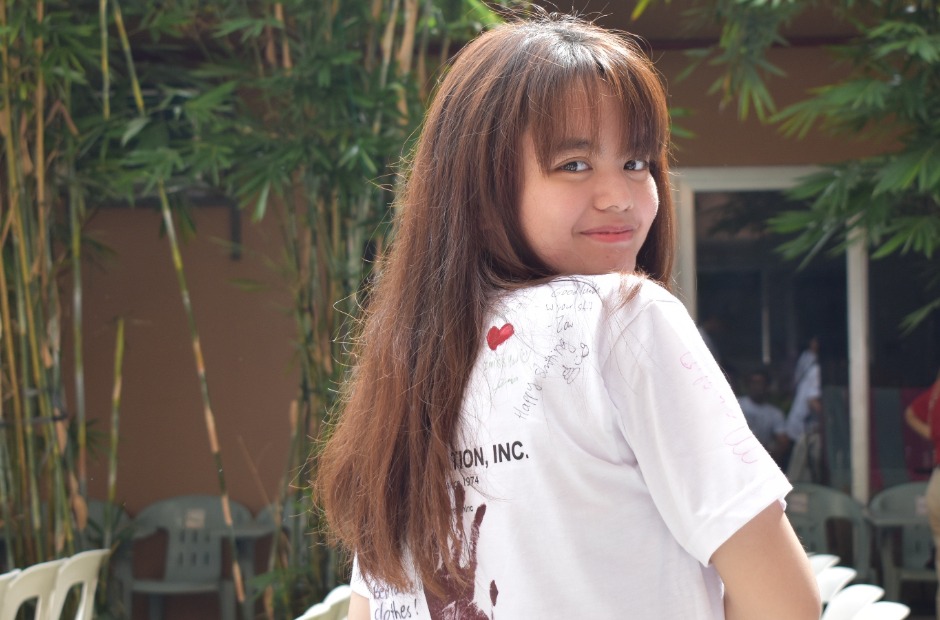She didn’t like Science until she met a tortoise beetle
22 Jun 2023
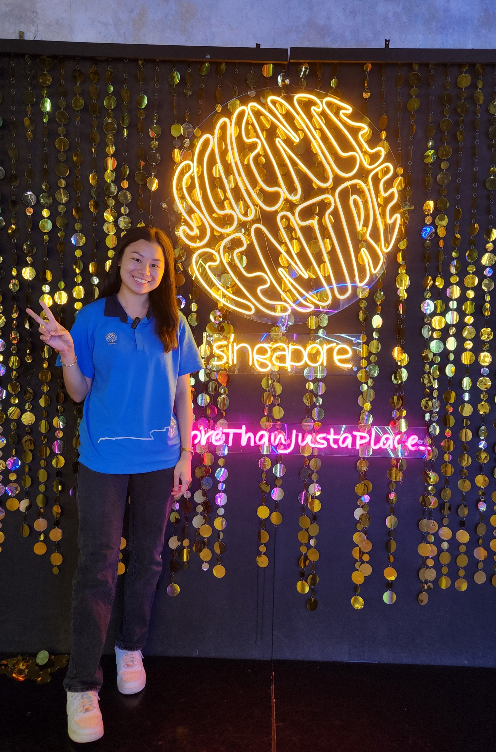
How’s this for a transformation? She went from hating science to taking Triple Science and wanting to be a Science teacher one day. Mikko Lee, a beneficiary of a STEM mentorship programme for underprivileged children, talks about how the right exposure turned her from mentee to mentor.
By Lee Qing Ping
If you have trouble convincing a kid to like Science, try introducing them to… the humble tortoise beetle.
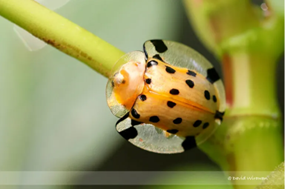
A tortoise beetle, spotted at the Green Corridor. (Photo credit: David Wirawan, Singapore Geographic)
For Primary 5 Mikko Lee who would groan a little inside every Science class, this tiny bug made a big impact on the course of her life.
Mikko, now 21 years old, recounts how she was struggling with Science in primary school and thought of it as a difficult, dry subject.
But a walk in the Science Centre’s eco-garden, the guidance of a patient mentor, and a STEM programme for primary school kids, changed all that.
“I have to do Science outside of school too?”
That’s what Mikko first thought when she was nominated by her primary school for the Abbott Young Scientist programme. Her teacher hoped the exposure may help Mikko appreciate STEM more. Jointly organised by Science Centre Singapore and Abbott and supported by the Ministry of Education (MOE), this is a mentorship programme for underprivileged primary school students to develop their interest in STEM.
“The school asked if I’d like to join [the programme], but I’d never heard of it before. I thought, is this going to be another Science project I have to do?” said Mikko, recounting her initial hesitation. She was to be the first batch of students in the program. “I thought, maybe just try lor,” she said.
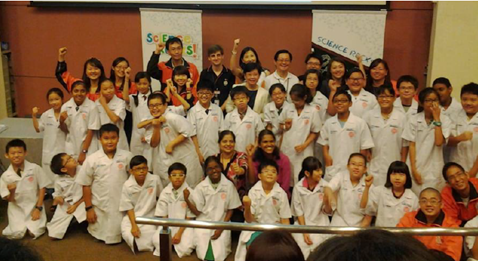
The first batch of Abbott Young Scientists in 2013 with their mentors from Science Centre.
So she tried, and was pleasantly surprised to find that doing Science outside of school was more enjoyable than she thought.
“We didn’t just sit in a classroom learning about theories. We got to go out into the eco-garden and have real-life encounters with Science concepts,” said Mikko. “I realised Science isn’t that boring after all. We’re studying something that’s actually here; I can see it in real life.”
Following where the wild things go
To give them a taste of Science research, the young scientists had to pick an area they wanted to dive deeper into. But they weren’t thrown into the deep end – each student was assigned a mentor to go about their research project together.
Cue Ms Mok Li Hui, Mikko’s mentor for the one year she was in the programme. At the time, Ms Mok was a Master Science Educator in the Science Centre Singapore, teaching primary and secondary school Science to kids through the Science Centre Singapore’s programmes that complemented the school syllabus.
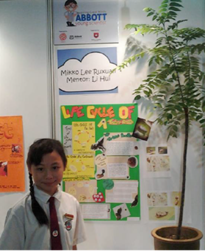
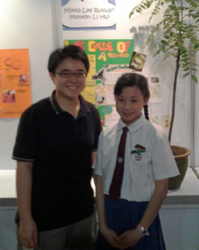
Mikko and her research poster of the lifecycle of a tortoise beetle at the programme’s concluding science fair, and (bottom) with Ms Mok.
Ms Mok made her look beyond the classroom when picking a research topic, to not confine herself to what she already knows. Round about then, Mikko took a fateful walk in the Science Centre Singapore’s eco-garden and crossed paths with the tortoise beetle. “It looked so interesting. I had never seen one before!” she marvelled even at the recap. “So I decided I wanted to learn more about their habitat, and what they eat.”
Mikko adopted the beetle and brought it home in a container, together with the leaves that it was evidently enjoying. “It eats curry leaves,” she added, pleased she can share this fun fact. Over the following few weeks, she watched the beetle grow, took photos of the process, and recorded it in her journal.
Besides beetles, Mikko started collecting other not-so-creepy crawlies like caterpillars and watched them grow.
It was then that she realised that while she may struggle with science in the abstract, she thoroughly enjoyed learning about biology, ecosystems and living organisms.
That was her eureka moment, when things fell right into place. She decided to focus her research topic on life science, and with Ms Mok’s help, turned her interest in her pet tortoise beetle into a research project.
A change of mind, a change of course
After the programme concluded, Mikko went on to take all three of the Science subjects in secondary school, to the surprise of her friends.
“They were like, ‘Huh? You really want to try Triple Science?’” Mikko said, laughing. She would go on to sign up in 2019 for a Food Science & Technology diploma course in Singapore Polytechnic, and intern in places like Nestle and the Agency for Science, Technology and Research (A*STAR).
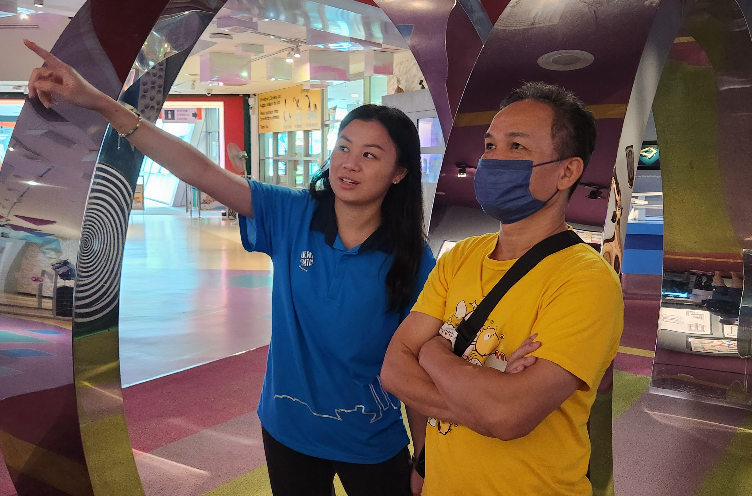 Mikko as a teen and a Science Explainer at the Science Centre Singapore; here, she is explaining the eye illusion exhibit to a visitor.
Mikko as a teen and a Science Explainer at the Science Centre Singapore; here, she is explaining the eye illusion exhibit to a visitor.
What does a sensory science intern do? “We evaluate products based on consumer feedback and what the market wants,” explains Mikko. “With consumers’ preferences in mind, we make healthier yet tastier nutritional products for all to enjoy.”
During her internship, she conducted market research, took part in product tastings, panellist evaluations, and learnt to consolidate data and conduct reviews. This gave Mikko an exposure beyond the classroom and opportunities to explore the wonders of innovation and invention. It also provided a pathway to shape her future in STEM.
As part of Abbott’s corporate social responsibility team, she also helped organise outreach programmes and field trips to the nutrition manufacturing facility for students and their parents to learn about careers in STEM.
The circle of life: When a beneficiary gives back
Of late, Mikko has been giving back to science the same way that science has sowed into her life. She joined the Science Centre Singapore as a Science Explainer. The role involves explaining what the exhibitions are about to the guests, perform demonstrations, conduct tours, and assist in live shows. “I got to see Ms Mok around at the Science Centre sometimes!” says Mikko merrily.
Ms Mok continues her work at the Centre, running informal science programmes for students. At the start of the Abbott Young Scientist programme, mentors were recruited from among Science Centre’s staff. They now include students from JC as well as Institutes of Higher Learning.
Fittingly, Mikko also got to be part of the Abbott Young Scientist Programme – this time as one of the organisers, and with her two younger sisters as participants. They were also selected by their school for the programme.
“I liked this part of my internship the most. Ten years ago, I was the participant. Now, I’m the one planning it,” Mikko says, beaming. She gives alumni talks and shares about her journey since joining the programme.
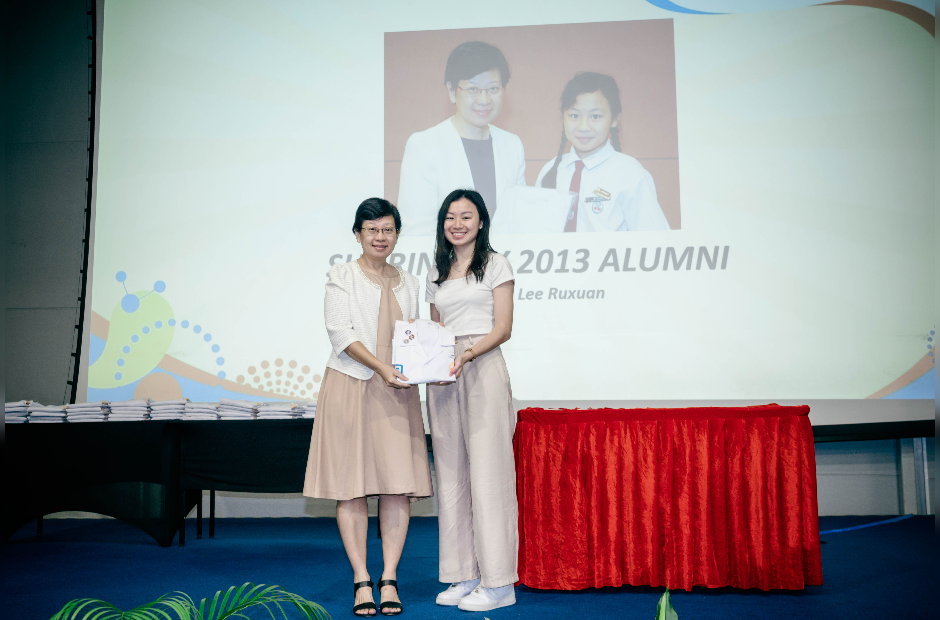
Mikko (above) at 11, Abbott Young Scientist Award 2013, receiving book prizesfrom Mrs Chua-Lim Yen Ching, then the Deputy Director – General of Education (Professional Development), and 11 years later, when she met Mrs Chua-Lim on stage again, this time as an alumnus.
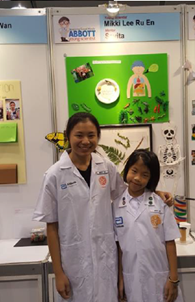
Mikko as an intern with Abbott and her younger sister Mikki, who was also selected to join the Abbott Young Scientist programme when she was in Primary 4.
The next chapter of her education journey
Unsurprisingly, Mikko has chosen to major in Biological Sciences for her Bachelor of Science programme at Nanyang Technological University. “After I graduate, I want to work in the corporate world first to gain more experience,” she continued. “But my long-term aspiration is to become a teacher.”
She credits the Abbott Young Scientist programme, which has supported 362 students for the past 10 years, for inspiring her to go beyond her limit. “Being in education will let me do the same for students regardless of their background,” said Mikko. “I want to help more young children find their way through life and discover what they can do in the future.”
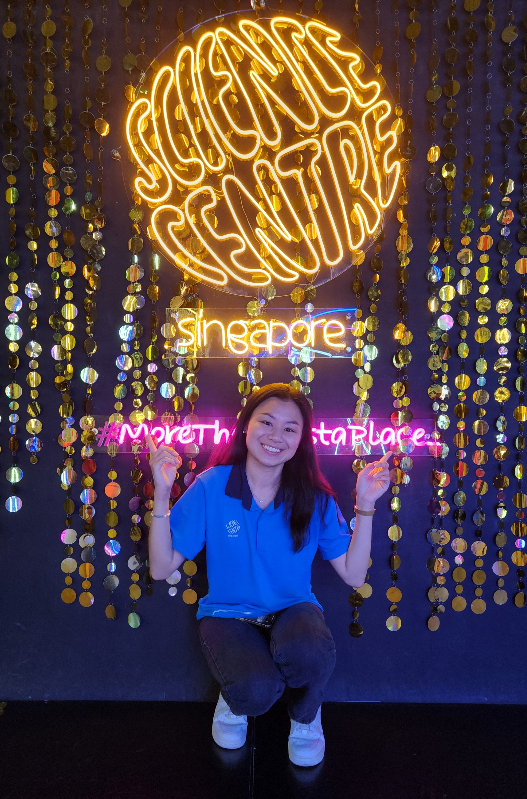
Mikko in 2022, at the Science Centre Singapore.
We are on Telegram! Subscribe to our channel: https://t.me/schoolbag_edu_sg

